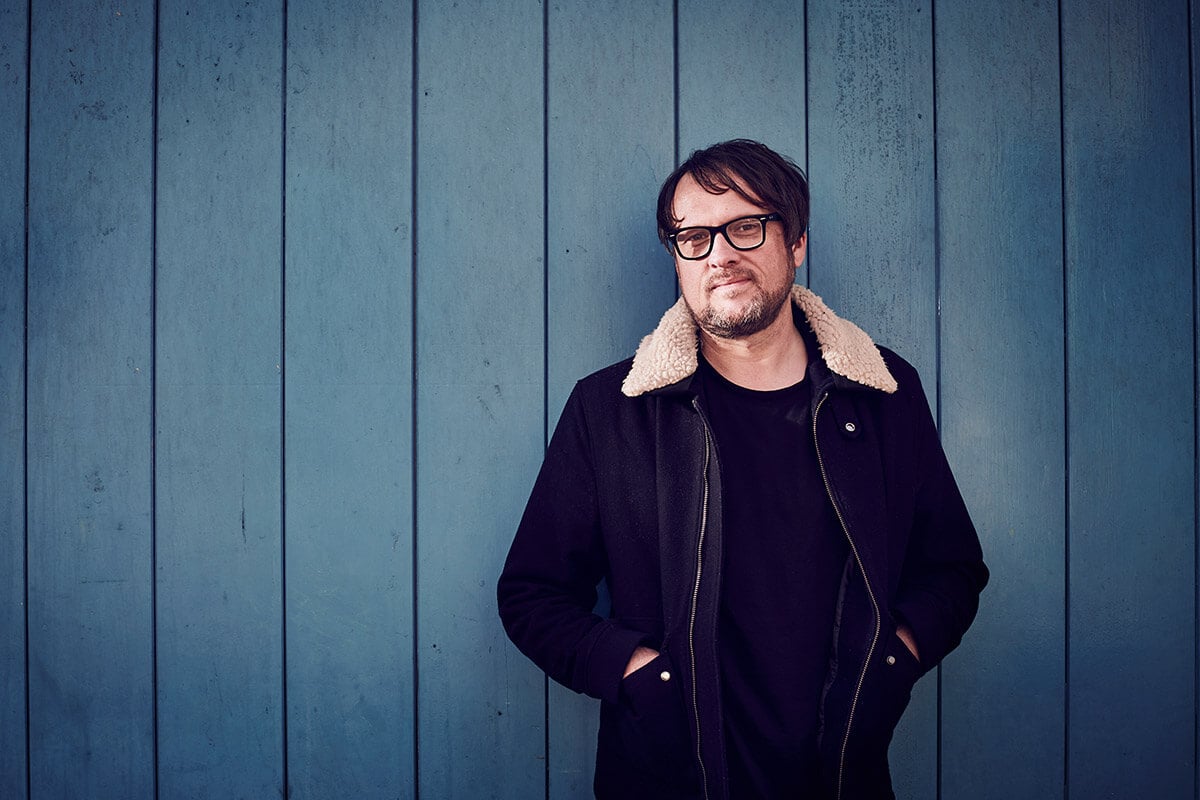When it comes to making money from music, few online options have proved quite as popular in recent years as Patreon, a membership subscription platform that enables musicians and other creators to launch a personalised subscription-based site for their fans, or ‘patrons’ as they are known. Launched in May 2013 by US musician Jack Conte as a means to make a living from his YouTube videos, the platform now boasts over 250,000 creators, making an estimated $100m per month from over seven million patrons across the globe. Ten years after its formation, the company itself is now valued at $4bn.
The premise of Patreon is simple: fans or patrons support their favourite creators by making direct payments to them for their creations. Patrons pay a set amount of money every time an artist creates a work of art. For this, Patreon charges a commission of between 5 to 12 per cent of creators' monthly incomes, in addition to payment processing fees.
The platform’s customer support has received some criticism from users in the past. But for many musicians, Patreon has offered a source of steady and recurring income. It also has the potential to strengthen the relationship between artist and fan. For musicians who sign up to the service, there are some key tips and techniques to consider making the platform work for you.
1. You will need an existing fanbase
The first thing to note is that Patreon will probably not work for you unless you already have a substantial number of fans willing to support you via a monthly subscription on the site. Patreon is a membership platform, not a discovery platform. The more established an artist already is online the easier it is to grow your patrons. So if you don’t have a fanbase, this probably isn’t the platform for you.
2. Make sure you have the time, patience and commitment
If you do have an existing online fanbase and want to sign up, the next thing to ask yourself is whether you have what it takes to grow that fanbase via Patreon. You will probably need to be offering your fans rewards and perks on a daily basis. So before you take the plunge, make sure you have the time, patience and commitment needed within your schedule to run your Patreon page.
3. Make a plan and keep it simple
Work out well before launching your Patreon page exactly what you want to achieve with it and make sure you have all the rewards and perks that you plan to offer your patrons ready to send to them. This could range from bonus audio content and behind-the-scenes footage to physical merch.
Set goals that are achievable and keep them simple. Fans will respond much better to a clear and concise message about what you plan to achieve. Make sure you set targets with dates and times when your patrons will be able to access new content.
4. Keep your fans engaged
Anyone who is a fan of your music will be interested in knowing more about the creation of that music, so in your first posts share a few behind-the-scenes photos, video clips or rough notes about upcoming releases.
“My Patrons will hear my new ideas before I’ve recorded them, sometimes before I’ve even finished them,” says singer-songwriter, busker and MU member Charlotte Campbell, who signed up with Patreon in 2016 with the aim of using the platform to crowdfund an album. She now uses the platform to share her newest songwriting ideas, and as “an extra form of income” from her patrons on the platform.
 Charlotte Campbell is a regular busker on London’s South Bank. She signed up to Patreon in 2016, to “create a space where I could share new songs in their early stages with my listeners and decided to monetise the uploads in order to fund the recording of my next record”. © Lloyd Richard
Charlotte Campbell is a regular busker on London’s South Bank. She signed up to Patreon in 2016, to “create a space where I could share new songs in their early stages with my listeners and decided to monetise the uploads in order to fund the recording of my next record”. © Lloyd Richard
“They comment to let me know what they think and essentially choose which ones I should take to the recording studio. I think they enjoy having their opinions heard with regards to which songs I move forward with, release and play live.”
5. Choose more than one tier membership
Patreon offers three membership tiers with differing payment and reward options for patrons. While it may be simplest to select just a one tier membership level at the start, all evidence suggests that having two or three tiers – from basic through to premium access – will increase your income on Patreon going forward. Some creators even extend their options to four, five or six membership tiers.
6. Promote your Patreon on social media
Link your Patreon page to all your online channels, promote it on social media and drive your existing fans to it to encourage them to become patrons. These fans will be crucial when building your following and will offer you more benefits.
Once you see revenue coming in from Patreon, don’t neglect your social media and the potential fans it may generate. Continue to create via your other social media platforms and build audiences of potential patrons.
7. Exclusivity for your ‘patrons’ is key
In many ways, Patreon is like a hub where your existing fans, who love what you do, can congregate to access exclusive benefits, perks and rewards.
“Exclusivity is definitely key to Patreon, so I do things like answering questions on my daily walk and acoustic performances,” says Liverpool singer-songwriter and MU member Robert Vincent, who signed up to Patreon in 2021. “It does also allow me to give them information on upcoming projects like new recordings or shows. I’ve also performed new songs for patrons. I think it ultimately allows you to be more personal with fans without having to put it out to the whole world of social media.”
 “Exclusivity is definitely key to Patreon,” explains Robert Vincent, “so I do things like answering questions on my daily walk and acoustic performances.” Photo: Jonathan Stewart ©MU
“Exclusivity is definitely key to Patreon,” explains Robert Vincent, “so I do things like answering questions on my daily walk and acoustic performances.” Photo: Jonathan Stewart ©MU
Charlotte Campbell echoes the importance of exclusivity on Patreon. “Offering something unique that people can’t find you doing elsewhere is the best way to incentivise subscribers,” she says.
8. Find your unique selling point
Patrons will support you because you are unique, so exploit this uniqueness when creating benefits, perks and rewards for them. Lockdown forced many artists to think more laterally. One such example was Lloyd Cole, who took to creating handwritten lyrics of his songs such as the title track from his 1984 album Rattlesnakes, which prompted a huge response from his fans.
Cole’s Patreon page is an excellent example of how to customise and personalise a Patreon Page. Even the three-tiered price points have a personal feel. For £3 a month, patrons can access benefits such as his photography and memorabilia, while the tier three package for £7.50 a month offers access to everything, from basement mini concerts to ‘attic modular synth videos’. “I've had many people suggesting I should have more tiers and charge more,” states Cole on his page. “I don't want to. I think what I'm asking is quite a lot.”
9. Acknowledge your music fans
Publicly acknowledging your patrons’ contributions is extremely important on Patreon. It shows them that you appreciate their support and that their contributions are enabling you to grow and thrive. It also fosters loyalty within your community.
“Every album and EP I’ve released since joining Patreon has a list of names of each of my patrons in the liner notes, to let them know I couldn’t have made that record without them,” says Charlotte Campbell. “I’m really lucky to have an audience who are regularly checking in and seeing what I’m up to across all platforms so they are certainly aware of how much their patronage helps me.”
Robert Vincent also highlights the importance of acknowledging the support of patrons. “I think it’s a way of constantly showing you are growing because without their contribution it would be so much harder to keep going. It allows a certain peace of mind for me and I thank them for their support on a regular basis.”
10. Make use of your tools and just be yourself
One of the greatest benefits of Patreon is that it is specifically designed with musicians and other creators in mind. As such, it is possible to create an outstanding user experience for your patrons. One of the most useful features is gated community access, which enables patrons to access exclusive content and mingle virtually with other fans. Patreon also offers the sharing of downloadable digital content between creator and fan, and provides you with valuable audience insights on what your fans are responding best to.
For the artist meanwhile, one of the greatest assets on Patreon is their own personality. “The only advice I can give is to be yourself with the content you post,” says Robert Vincent. “I’m still very much learning what works and what doesn’t but inviting them into a daily routine or a process of your creative world really resonates with patrons I find.”